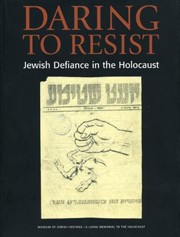The story of a beautiful young Jewish law student who did not try to escape Austria because she would not leave her widowed mother or her half-Jewish classmate, Pepi, with whom she had fallen in love. Together, they share the shock of watching Hitler devour the countries of Eastern Europe without a shot and soon annex their own Vienna, upon which most of the gentile citizens are delirious with joy and viciously begin to attack their former Jewish neighbors and classmates.
Like other Austrian Jews, Edith Hahn, a brilliant student, had taken her country’s anti-Semitism in stride. She loved Vienna’s beauty and culture. Despite the underlying anti-Semitism of many in the Christian population, Jews could practice their professions, own businesses, have Christian friends and intermarry with Christians. Some of the brightest students had become socialists, however; many of which dreamed of one day going to Palestine. Was it too late, now that the Germans had marched in to the cheers of Vienna’s citizens? As conditions worsen, more Jews try to escape but many, unwilling to leave their elderly relatives, remained. Among those who tarried too long was Edith Hahn Beer, whose mischling boyfriend’s Christian mother didn’t want him to leave, not even after Kristallnacht, the pogrom against the Jews when their Jewish friends were beaten and one after the other dragged away to Dachau or other camps. Edith and her mother are dispossessed from one lodging after another. Finally, Edith is called up for slave labor and begins on her long journey of exhausting working and nearly starving in a series of slave labor camps, until – on her way to a concentration camp, she escapes from the train.
With a brave and generous friend’s identification documents, Edith, assumes her gentile friend’s identity and becomes a “submarine,” one of those Jews who hide in plain sight in a land that will murder them if they are discovered. When an opportunity to live as the wife of a German soldier (and artist) arises under unusual conditions, she finally accepts his proposal, lives the lie, and survives. Edith never surrenders her true self, however, only buries it for a while.
A twelve-page supplement to the autobiography provides a long obituary for Edith Hahn Beer, a recollection of the author by her loved ones, and a reading group guide. This edition of the Edith Hahn Beer’s original book is identical to the original, and has no doubt been published to accompany the forthcoming film. Read the book first; a film seldom includes everything.





